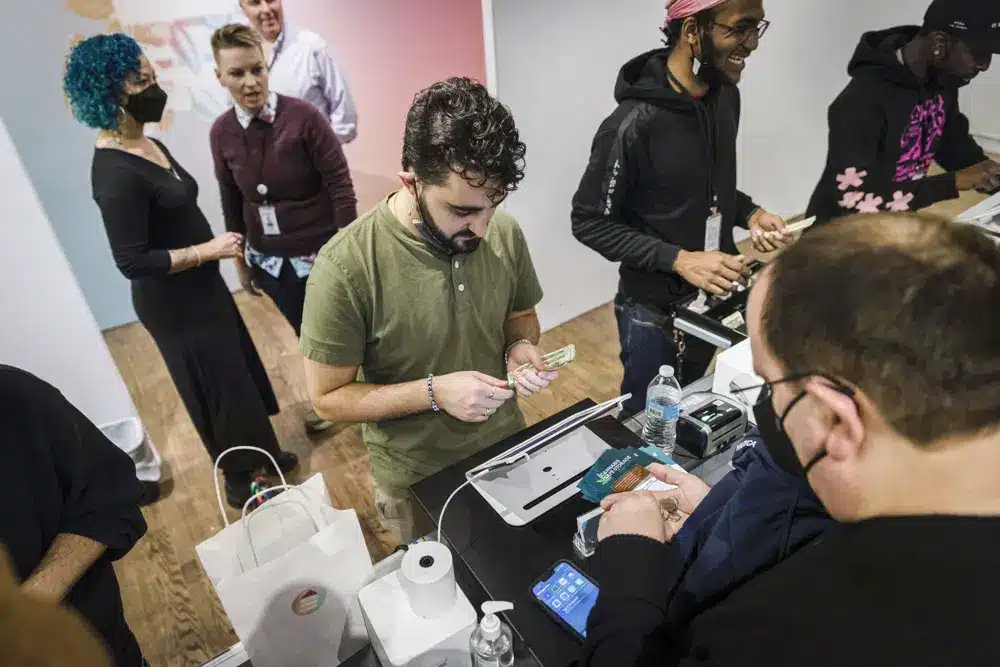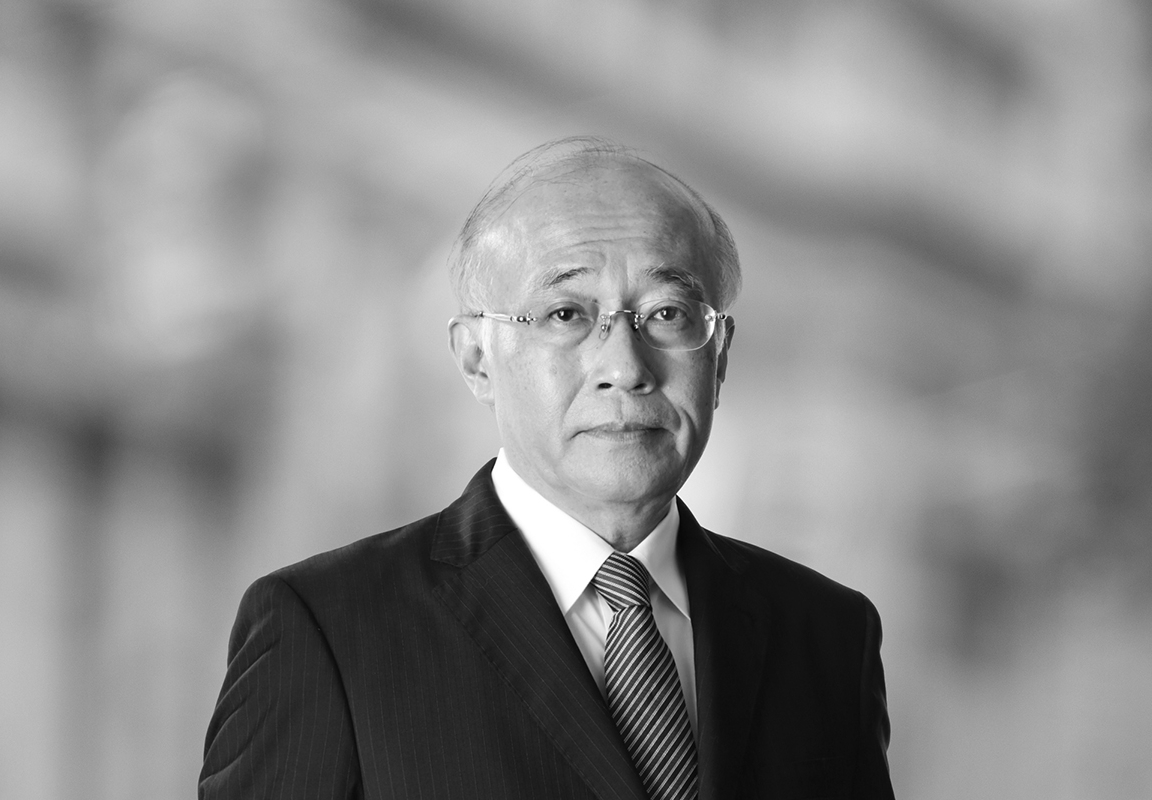Business
Crackdown Proposed For Illegal Pot Shops In New York

Albany, New York – Under legislation by Governor Kathy Hochul on Wednesday, New York police would have more authority to close down illicit marijuana businesses and impose fines of up to $200,000. Hochul is trying to protect the state’s nascent legal recreational marijuana sector.
Although only three stores have opened thus far in New York City and two in upstate New York, the state is working hard to kickstart its potentially enormous adult legal industry. A profusion of unauthorized stores is undermining legal city enterprises.
City officials have already pursued landlords who permitted illegal businesses to run. The new law being considered by the legislature would grant the state Office of Cannabis Management and state tax officials more authority to crack down on illegal operations.
The law would set processes for the government to close down unlicensed enterprises and grant the cannabis office increased ability to seize illegal goods. According to the Hochul administration, violations could result in fines of $200,000 for illegal cannabis plants or goods, and businesses might be punished with $10,000 per day for selling cannabis without a license.
In a prepared statement, Hochul said: “The continuous presence of illegal dispensaries is intolerable, and we need additional enforcement measures to safeguard New Yorkers from harmful goods and promote our equitable objectives.
We need additional enforcement measures to safeguard New York.
Since the recreational use of marijuana was legalized in New York in March 2021, progress has been modest.
New York has reserved its initial retail licenses for charitable organizations, applicants with prior marijuana convictions, and their relatives, in contrast to many other states. The measures are intended to remedy injustices brought on by the nation’s drug war.
However, while a legal challenge to the state’s selection procedure is being examined, a federal judge has temporarily barred the state from issuing recreational marijuana dispensary licenses in Brooklyn and specific regions of upstate New York. The business Variscite NY One claims that the state’s selection procedure disfavors out-of-state residents in violation of the constitutional provisions governing interstate trade.
Veteran cannabis investor Emily Paxhia praises New York for having solid intentions about social fairness but claims the city was blind to the necessity of establishing action against unlawful shops at an early stage. The legalization rollout thus far, according to Paxhia, a co-founder and managing partner of Poseidon Investment Management, is “a disaster” but not a total failure.
Paxhia, a Buffalo native, said: “I’m still hopeful that the New York market turns around.
SOURCE – (AP)
Business
Tesla Cuts The Price Of Its “Full Self Driving” System By A Third To $8,000

NEW YORK — Tesla reduced the price of its “Full Self Driving” system — which cannot drive itself and requires drivers to remain attentive and ready to intervene — by nearly a third to $8,000 from $12,000, according to the company website.

Penn Today – VOR News Image
Tesla Cuts The Price Of Its “Full Self Driving” System By A Third To $8,000
Tesla CEO and billionaire Elon Musk stated in 2019 that there would be a fleet of robotaxis on the road by 2020, but that promise has yet to be fulfilled, and the system must still be supervised by humans.
The cutbacks, which took effect on Saturday, follow Tesla’s decision to trim $2,000 off the pricing of three of its five models in the United States late Friday. That is the most recent example of the difficulties that the electric vehicle manufacturer is facing.

Electric – VOR News Image
Tesla Cuts The Price Of Its “Full Self Driving” System By A Third To $8,000
Tesla dropped the costs of its most popular model, the Model Y, a small SUV that is the best-selling electric vehicle in the United States, as well as the Models X and S, which are older and more expensive. Prices for the Model 3 car and Cybertruck remained unchanged.

KBB – VOR News Image
Tesla Cuts The Price Of Its “Full Self Driving” System By A Third To $8,000
The price cut comes a day after Tesla’s stock fell below $150 a share, wiping out all gains recorded in the previous year. The Austin, Texas-based company’s stock price has fallen almost 40% this year due to declining sales and growing competition. Discounted sticker prices are intended to entice more car purchasers.
SOURCE – (AP)
Business
Japan’s Anti-Monopoly Body Orders Google To Fix Ad Search Limits Affecting Yahoo

TOKYO — Japan’s antitrust authority stated Monday that Google, the US search giant, must rectify its advertising search restrictions that impact Yahoo in Japan.
The Japan Fair Trade Commission said in a statement that a recent investigation into Google’s activities revealed that it was hurting fair competition in the advertising sector.

Blog Spot – VOR News Image
Japan’s Anti-Monopoly Body Orders Google To Fix Ad Search Limits Affecting Yahoo
Yahoo Japan Corp., which later merged with the Japanese social media platform Line, began offering keyword-targeted search advertising services utilizing Google’s technology after the two businesses forged a partnership in 2010.
The FTC claims that Google imposed limits in its search advertising deal with Yahoo Japan for more than seven years, limiting its ability to compete in focused search ads.
An FTC investigation into whether this violated the Anti-Monopoly Law prompted Google to lift the limitations.
Google said in an emailed statement that it has fully cooperated with the commission’s investigation and that the agency has not determined that it has breached antitrust laws. It committed to follow the commission’s orders and provide “valuable” search services to Japanese consumers and marketers.

RMW – VOR News Image
Japan’s Anti-Monopoly Body Orders Google To Fix Ad Search Limits Affecting Yahoo
Line Yahoo declined to comment.
Google will be subject to a three-year review to ensure that necessary improvements are implemented, according to the commission. It did not impose any fines or other penalties on Google, which remains popular in Japan.
The commission’s decision comes after another setback for Google in Japan. Japanese doctors launched a civil case against the corporation last week, seeking damages for what they call baseless, insulting, and frequently inaccurate statements.

White & Case – VOR News Image
Japan’s Anti-Monopoly Body Orders Google To Fix Ad Search Limits Affecting Yahoo
The Tokyo District Court lawsuit seeks 1.4 million yen ($9,400) in damages for 63 medical professionals who posted ratings on Google Maps.
Google responded by saying it is working “24 hours a day” to remove misleading or incorrect content on its platform, using human and technology resources “to delete fraudulent reviews.”
SOURCE – (AP)
Business
Tesla reduces US prices for 3 of its electric vehicle models following a rough week.

Tesla reduced the pricing of three of its five models in the United States by $2,000 late Friday, highlighting the issues facing the electric vehicle firm run by billionaire Elon Musk.
The business reduced the costs of the Model Y, a small SUV that is Tesla’s most popular model and the best-selling electric vehicle in the United States, as well as the versions X and S, which are older and more expensive versions. Prices for the Model 3 car and Cybertruck remained unchanged.
AP – VOR News Image
Tesla cuts US prices for 3 of its electric vehicle models after a difficult week
The reductions dropped the starting price for a Model Y to $42,990, $72,990 for a Model S, and $77,990 for a Model X.
The decision comes a day after Tesla’s shares fell below $150 per share, wiping out all gains earned over the previous year. The Austin, Texas-based company’s stock price has fallen almost 40% this year due to declining sales and growing competition. Discounted sticker prices are intended to entice more car purchasers.
Musk announced early Saturday on X, the social media site that was previously known as Twitter, that the cost of an entry-level Tesla could be as low as $29,490 after accounting for a federal tax credit and gas savings.
Industry observers have been waiting for Tesla to unveil the Model 2, a tiny electric vehicle for approximately $25,000. This month’s media rumors that Musk intended to cancel the project added to uncertainty about the company’s direction, but Musk denied the reports.
AP – VOR News Image
Tesla cuts US prices for 3 of its electric vehicle models after a difficult week
The price drops marked the end of a long workweek for Tesla, which said on Monday that it would be laying off 10% of its global workforce, or approximately 14,000 employees. The company also announced the recall of roughly 4,000 of its 2024 Cybertrucks after discovering that the accelerator pedal could become stuck, enabling the vehicle to accelerate accidentally and increasing the danger of a crash.
Musk stated on Saturday that he has postponed a planned weekend travel to India to meet with Prime Minister Narendra Modi due to “very heavy Tesla obligations.” He expressed on X that he was looking forward to rescheduling the visit for later this year.
Tesla is slated to report first-quarter profits on Tuesday.

reuters – VOR News Image

Le Auto – VOR News Image
Tesla cuts US prices for 3 of its electric vehicle models after a difficult week
The business stated earlier this month that its global sales declined substantially from January to March as competition grew, electric car sales growth stagnated, and previous price cuts failed to attract additional buyers.
Tesla’s quarterly sales fell year on year for the first time in nearly four years.
SOURCE – (AP)
-
News5 months ago
Death Toll From Flooding In Somalia Climbs To Nearly 100
-
Business5 months ago
Google Will Start Deleting ‘Inactive’ Accounts In December. Here’s What You Need To Know
-
Entertainment5 months ago
Merriam-Webster’s 2023 Word Of The Year Is ‘Authentic’
-
Sports5 months ago
Panthers Fire Frank Reich In His First Season With Team Off To NFL-Worst 1-10 Record
-
Celebrity5 months ago
Elon Musk Visits Destroyed Kibbutz and Meets Netanyahu in Wake of Antisemitic Post
-
Celebrity5 months ago
Shane MacGowan, Lead Singer Of The Pogues And A Laureate Of Booze And Beauty, Dies At Age 65

















































